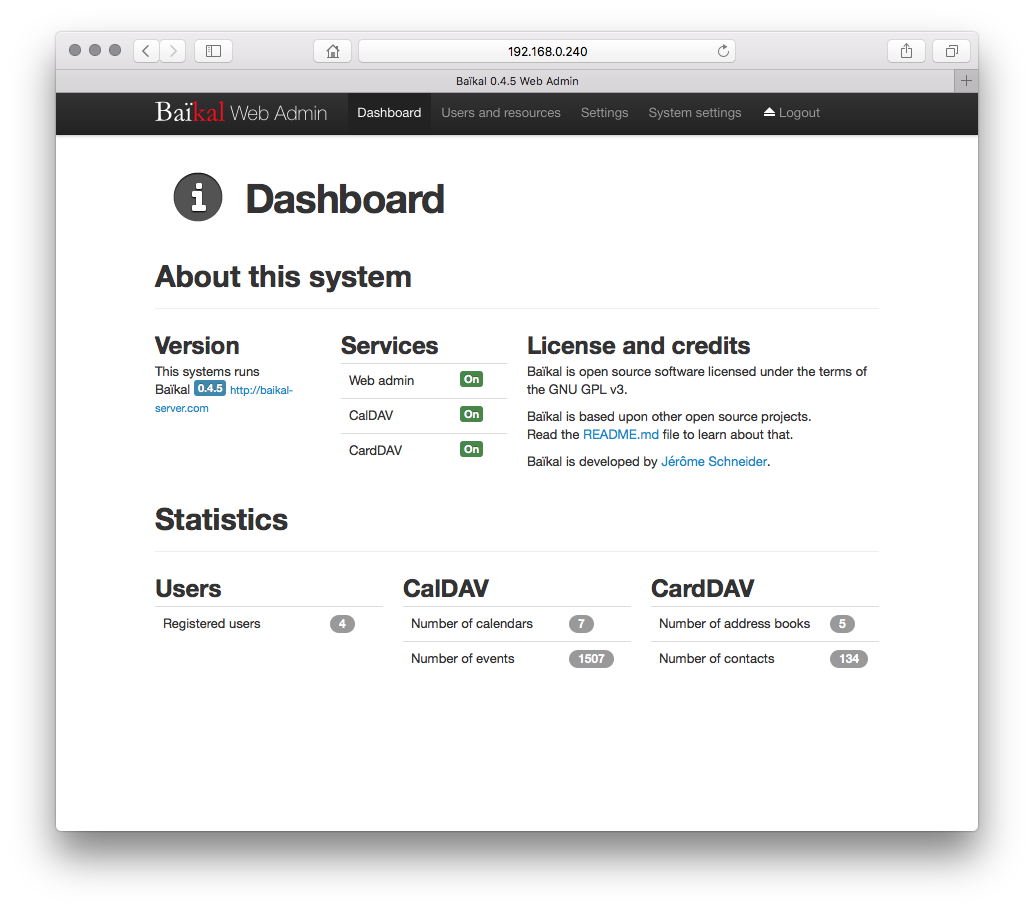Baïkal: Have your own CalDav and CardDav server
What are CalDav and CardDav?
CalDav is an internet standard and protocol used to sync calendars across devices and services. It is often used to sync your calendar events between your calendar apps, webmail, devices and services.
CardDav or vCard is an address book client/ server protocol and standard, as well as extension to WebDav that allows users to store, sync, and share their contact data on a compliant server. CardDAV protocol was developed by the IETF and was published as RFC 6352 in August 2011
What is Baïkal?

Baikal is a free open-source self-hosted CalDav and CardDav server for users who want to take charge of their data and make sure their data is private.
Features
- Informative clutter-free dashboard
- Statistical notes about the current system usage: users count, CalDav calendars, events, CardDav contacts, and address books counts
- Compatible with iOS, Mac OS X, DAVx5 on Android, Mozilla Thunderbird and every other CalDAV and CardDAV capable application
- Comes with a rich web interface
- Supports multiple users
- Multiple installation option: from source, docker
- Uses MySQL, MariaDB, or SQLite
- Can be installed on Apache or Nginx
- Supports PHP 7 or later
- Enable or disable the Web admin, CalDav, or CardDav
Tech
Baikal is built on top of Sabre which is a WebDAV framework for PHP. It supports several CardDav, and Calendar extensions by default which include:
- WebDAV
- CalDAV
- CardDAV
- vCard 2.1, 3.0, 4.0 and jCard
- iCalendar 2.0 and jCal
- current-user-principal
- Extended MKCOL
- WebDAV-sync
- CardDAV directories
- CalDAV delegation
- CalDAV sharing
License
Baïkal is licensed under the GNU GPL v3 License.
